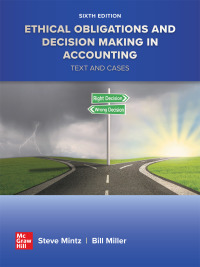From the first quarter of 2018 through the third quarter of 2021, Accelerator, Inc., engaged in a
Question:
From the first quarter of 2018 through the third quarter of 2021, Accelerator, Inc., engaged in a wide-ranging fraud designed to artificially inflate the company’s reported revenue. This fraud involved Accelerator’s relationship with its largest distributor and resulted in the company’s misstating millions of dollars of revenue in its financial statements.
Starting in 2018, Accelerator’s sales to its distributor was gradually decreasing. As a result, during the last three quarters of the year, the company began to improperly record revenue by entering into and concealing side arrangements. The concealment of these side arrangements caused Accelerator to improperly recognize revenue representing at least 12 percent to 28 percent of its reported revenue during the relevant time period.
Accelerator improperly recognized revenue at the time it shipped products to its distributor. This improper revenue recognition occurred because of a secret side arrangement between the company and its distributor that materially altered the terms of Accelerator’s relationship with the distributor, including allowing the distributor to pay Accelerator only when it resold the products, and crediting the distributor for lost, damaged, or returned products. This side arrangement with the distributor should have prevented Accelerator from recognizing revenue at shipment.
Discuss the appropriateness of Accelerator’s recognition of revenue with the distributor using the new revenue recognition standard. What would be your ethical concerns with the way the company recorded revenue from the distributor?
Step by Step Answer:

Ethical Obligations And Decision Making In Accounting Text And Cases
ISBN: 9781264135943
6th Edition
Authors: Steven Mintz





